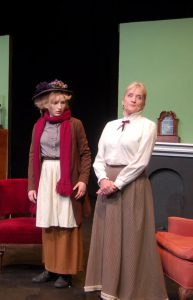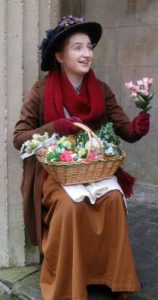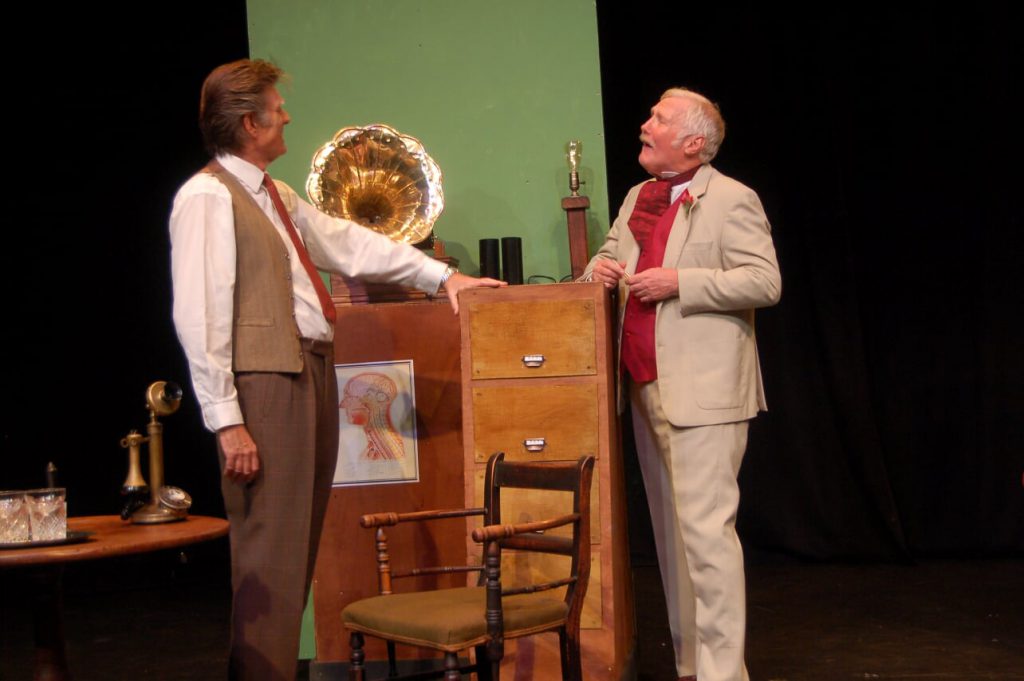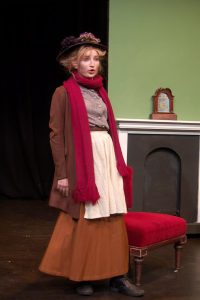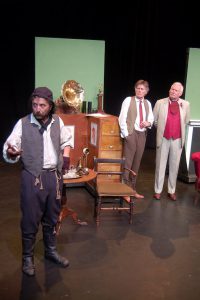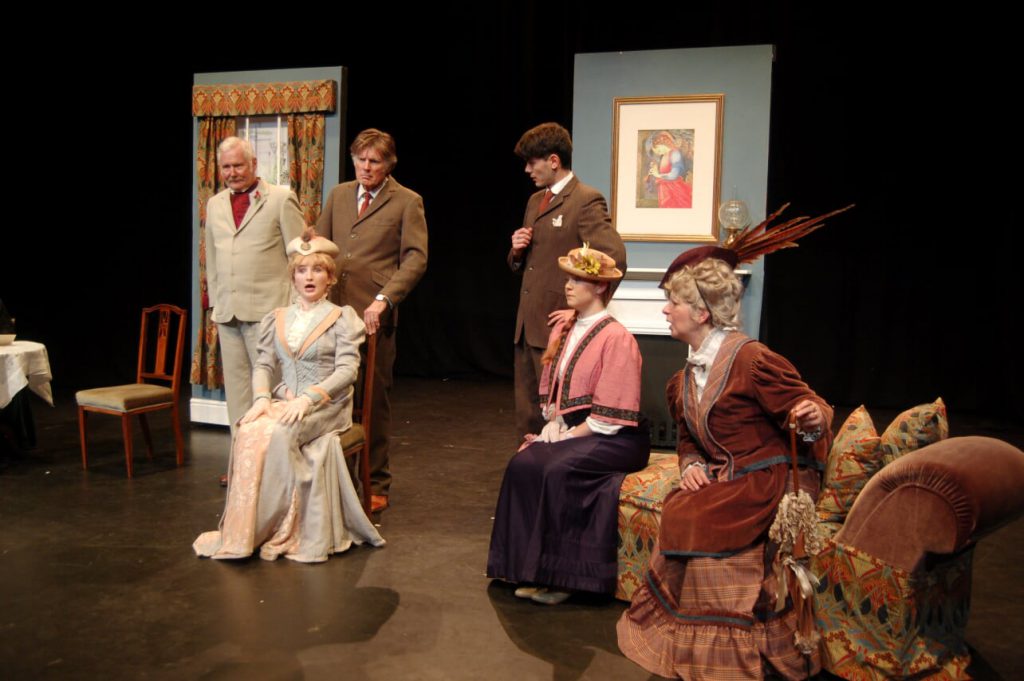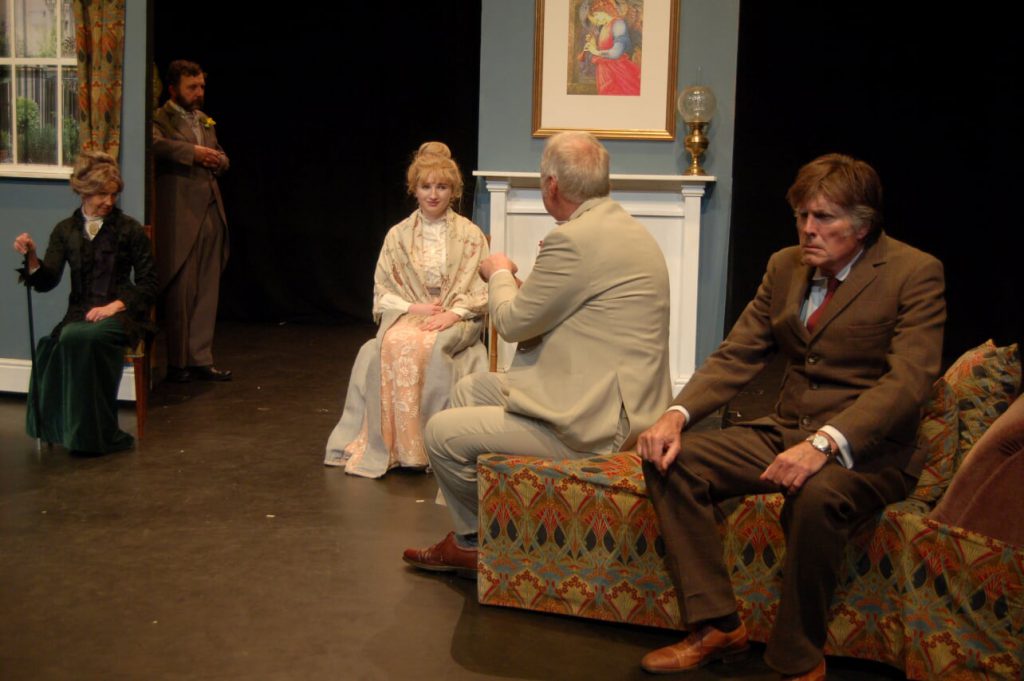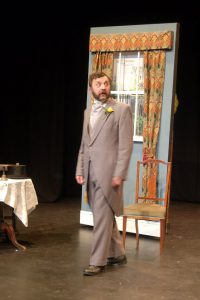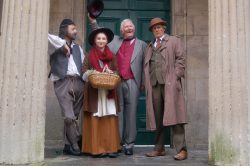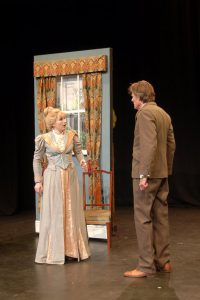Pygmalion
By George Bernard Shaw, directed by Simon Blacksell
November 2018
FromeDrama has grabbed the chance to enlist young Anabella Fairgrieve and put her centre stage in a production of George Bernard Shaw’s Pygmalion, and the result is a triumph.
Incredibly assured for one so young (she’s only 16), this enormously talented actress is headed for the top, and it’s a delight to see her brilliant performance right at the start of her career.
Shaw is famously wordy, and it’s not until you hear the play that inspired the 1964 film My Fair Lady that you realise quite how much original Shavian dialogue Alan Jay Lerner used for his screenplay. The change between play and film was the ending.
Simon Blacksell’s production for FDC underlines what HAS changed in our society in the 106 years since the play had its premiere. Set in 1910, Pygmalion opens at the portico of a Covent Garden church, where a ragged girl is selling flowers to the ladies and gents passing by. Of course, Covent Garden was a fruit and vegetable market then, cheek by jowl with the Royal Opera House where the toffs went to hear the opera and watch the ballet.
The crusty Professor Higgins is scribbling notes when the rains come, and finds himself in the company of a mother and daughter and another man, all waiting for a cab. The girl, Eliza, is using her usual patter to tempt them to buy “flarz”. Higgins is eagerly writing down her vowels and intonation. When it transpires that the other man is Col Pickering, an old India hand also interested in phonetics, the two men excitedly devise a plan in which Higgins will transform the flower girl into a faux duchess, able to pass muster at an Embassy ball, and all within six months.
Poor Eliza is nothing more than an experiment to the unworldly Higgins, who takes her into his house, dresses and feeds her and subjects her to endless vocal exercises until her voice – the one thing that delineates the English – has lorst its Cockney cadences and taken on the air-hair-lair tones of the upper classes. She’s an apt pupil and no-one at the ball doubts for a moment that she’s a duchess. Job done. But Higgins has bargained without Eliza’s feelings, trampled roughshod under the inevitable brown boots.
A simple and effective set provides Higgins’ suite of rooms, his charming mother’s London home and the street, and the excellent cast nails Shaw’s witty but verbose lines.
David Holt is an all too recognisable Higgins, with Phillip de Glanville as the kinder Pickering, Lynne McCaffrey as the wisely worried housekeeper Mrs Pearce and Laurie Parnell in a barnstorming performance as Eliza’s father, newly exposed to the dread middle class morality.
The play, like the musical, is Eliza’s, and Anabella Fairgrieve is astonishing.
